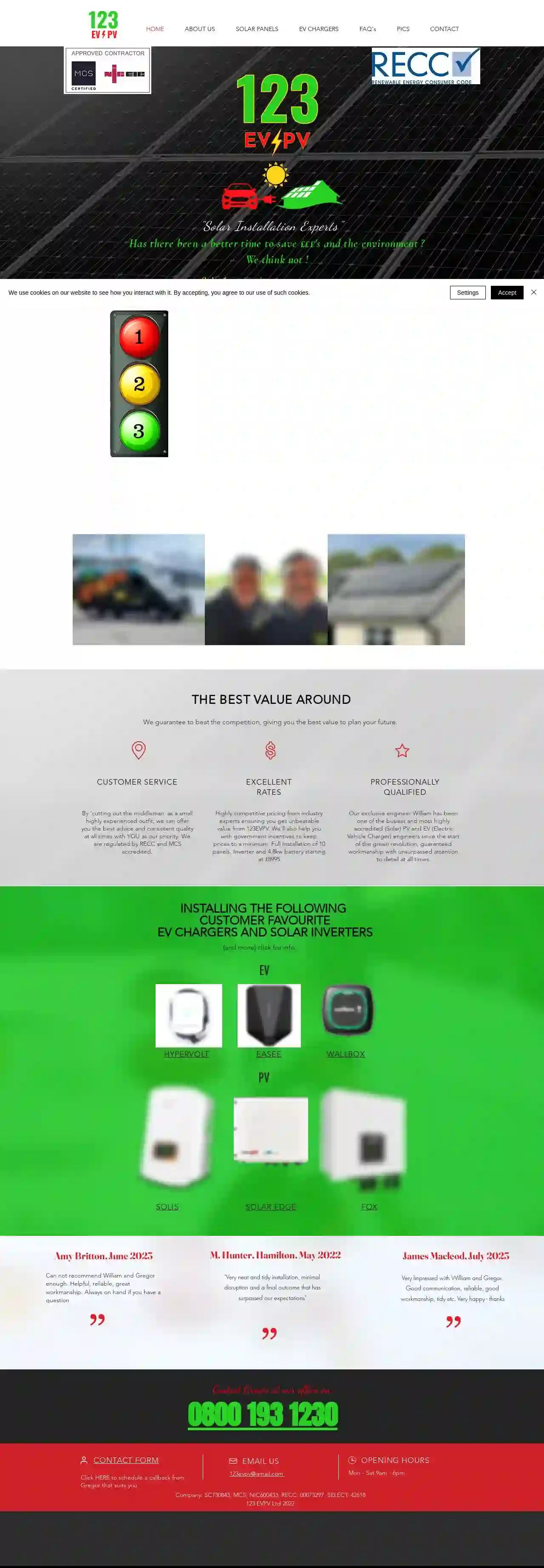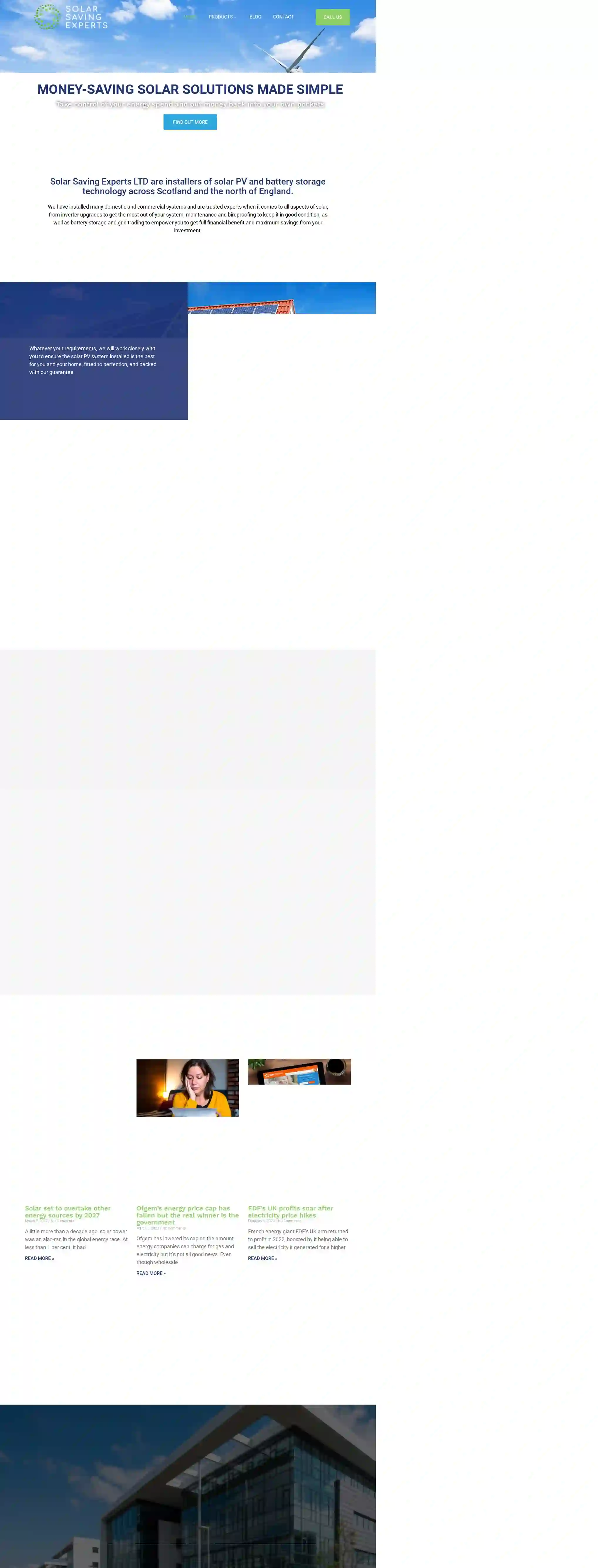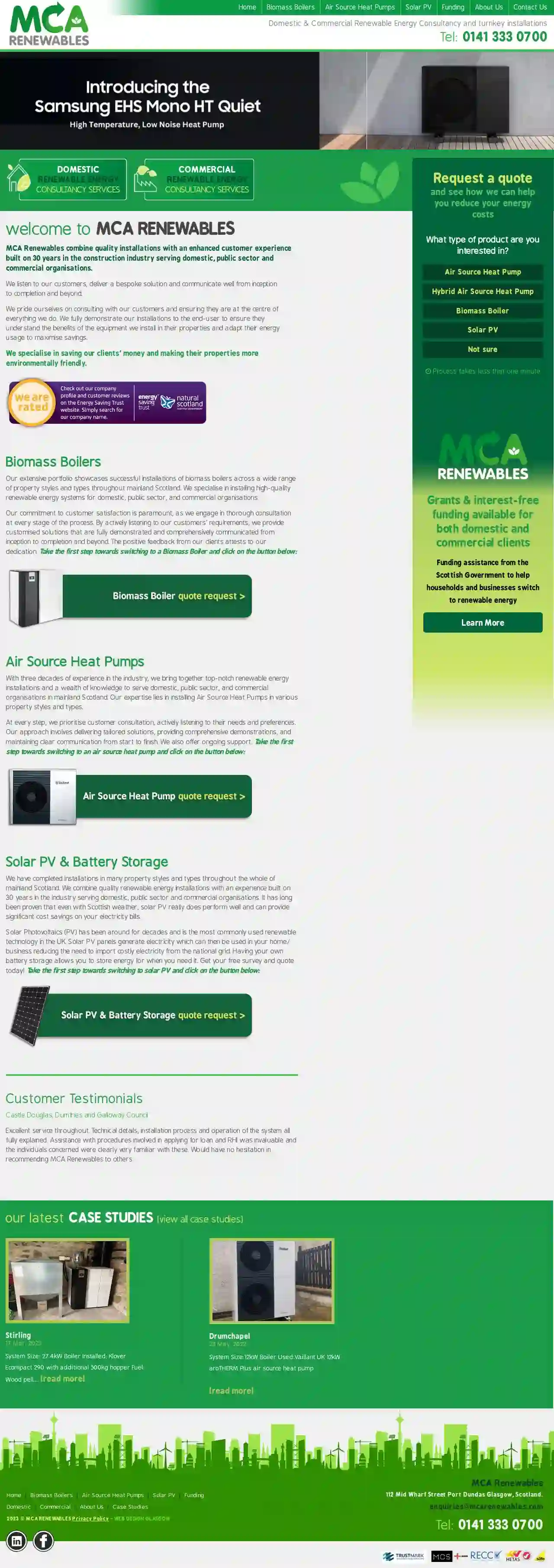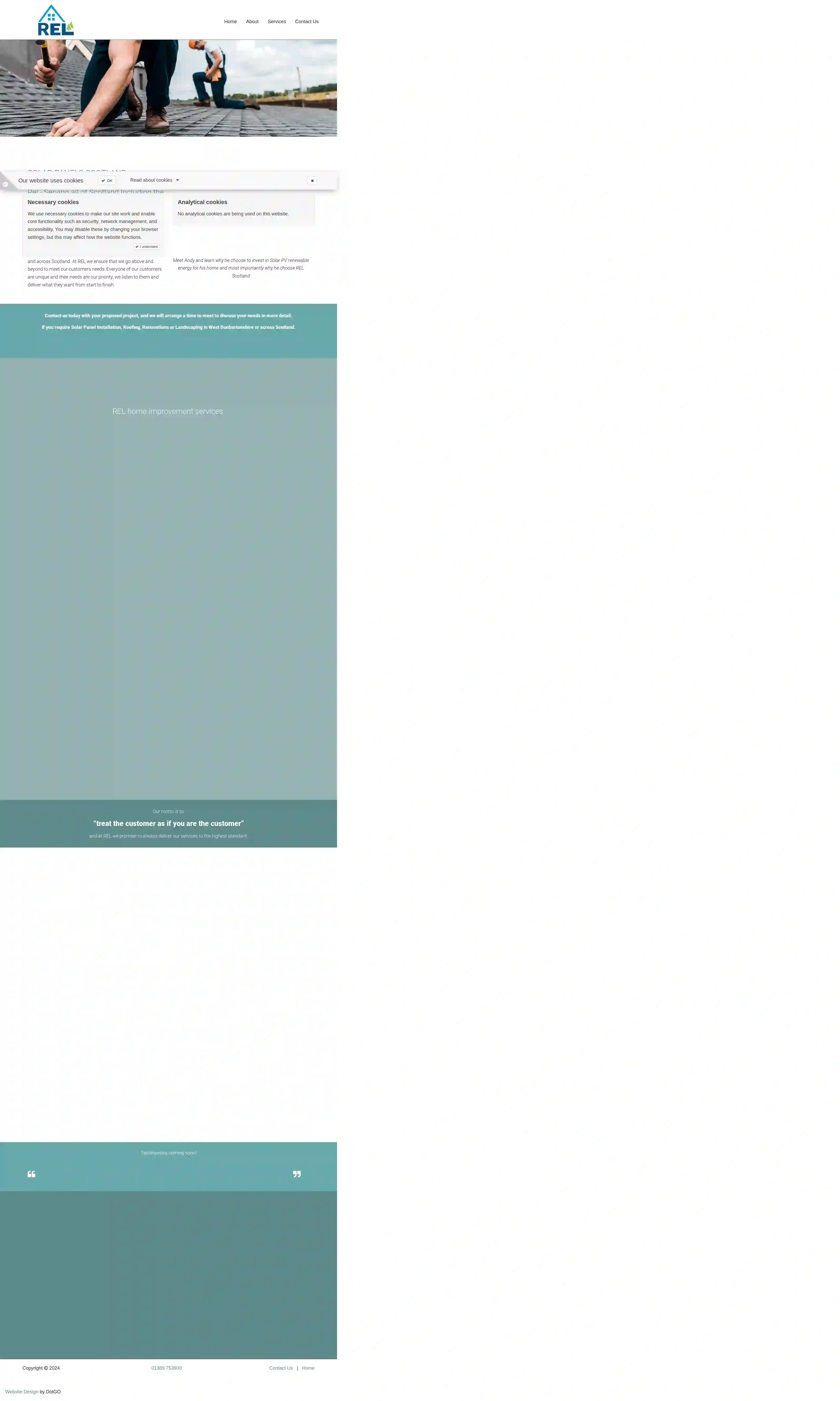Solar Installers Bailleston
Find Solar Companies in Bailleston
Receive up to 3 Solar Company quotes for your project today! Compare profiles, reviews, accreditations, portfolio, etc... and choose the best offer.

UK Greentech
1000 Stratford Road, Birmingham, Unit 1, The Innovation Centre, B1 1AA, GBUK Green Tech is a leading provider of sustainable energy solutions, committed to helping businesses and individuals reduce their environmental impact. With a team of experienced engineers and technicians, we offer a comprehensive range of services, including solar panel installation, battery storage, and energy efficiency audits. Our mission is to make clean energy accessible and affordable for all, while creating a greener future for generations to come. We are passionate about providing innovative and reliable solutions that meet the unique needs of our clients. Our commitment to excellence is reflected in our high-quality products, exceptional customer service, and unwavering dedication to sustainability. At UK Green Tech, we believe that everyone has a role to play in protecting our planet. By choosing our services, you are making a positive contribution to a cleaner, healthier environment.
- Services
- Why Us?
- Accreditations
- Our Team
- Testimonials
Get Quote
Solar Panel Bird Proofing Glasgow and Scotland
4.933 reviewsGlasgow, GBWe Cover All Over Scotland For a quote Call 01414337335. [email protected] Home About Us Services Solar Panel Cleaning Solar Panel Bird Proofing Areas We Cover Solar Panel Bird Proofing Glasgow Solar Panel Bird Proofing Edinburgh Solar Panel Bird Proofing Lanarkshire Solar Panel Bird Proofing Renfrewshire Solar Panel Bird Proofing Greater Glasgow Contact Us Press enter to begin your search Solar Panel Bird Proofing If you are looking for solar panel bird proofing you’re at the right place Do you have pigeons nesting under your solar panels? Then you may want to speak to us about our expert solar panel bird proofing glasgow solutions I specialise in the cleaning and bird-proofing of solar panel systems to ensure that they’re running as efficiently as possible. All my work is neat and tidy, professionally fitted and reasonable priced, so you can be rest assured that we will be able to increase your solar efficiency and deter feathered pests from your system. Furthermore, our highly trained team can also assist with the bird-proofing of all different kinds of structures to match your needs. Public notice. We are aware that some of our competitors are drilling or screwing into panels when installing anti bird systems on solar panels. This will most likely void any warranty you have on your panels. We have been told this multiple times from different solar panel installation companies and have always used a mesh and mechanical clip system which avoids this issue and is still very robust. To date we have had no issues with the anti bird system we use. Solar Panel Bird Proofing (Right Solar Care) 5.0 Based on 17 reviews Carole MacKay 16:48 05 Jan 20 Very impressed with quick service phoned 2 days ago and fitted this afternoon.! 2 lovely guys who are very hard working... didnt stop for 4 1/2 hrs straight. Can highly recommend.read more Jim Kennedy 14:29 03 Dec 19 Highly recommended. they carried out a professional and tidy job with no fuss. Explained the procedure and the kit... fully, I have no issues recommending them.read more Nuswift Business Development 17:54 06 Oct 19 Honest decent professionals neat and tidy workers.No drama even when the job was providing a challenge. No hesitation... in fully recommending these guys.John Gallagherread more Carol Watson 19:27 03 Aug 19 Jim and company were really helpful re our solar panel pigeon problem. They did a fantastic job, cleaned up after... themselves, We are delighted and highly recommend them. A great company to deal with. Thank you very much!! Carol & David.read more Ashley Black 15:06 25 May 19 We had a terrible problem with pigeons under our solar panels. Jim and his team cleaned and proofed our solar panels... to a high standard. They were timely, very helpful and went above and beyond to help. I would highly recommend them.read more Shelagh Tochel 18:07 14 Apr 19 Bad problem with birds nesting under solar panels. Gutters were very heavy with dirt , grass , bird droppings. They had... supposedly been cleaned by another company less than six months ago , but I think they only skimmed off the top layer of muck. Jim and Charlie fenced of panels with galvanised mesh and tie wraps. Cleaned gutters and roof and left my garden spotless . They worked diligently and quickly . They are two of the nicest people you could meet . I would recommend Jim and Charlie most highly . Thank you again for a job well done.read more Alan Taggart 16:39 13 Mar 19 Great communication when quoting/ organising job. First class service provided at a very reasonable cost. Can’t... recommend highly enough. Peace restored with effective installation!read more
- Services
- Why Us?
- Testimonials
- Gallery
Get Quote
123EVPV
55 reviewsGlasgow, GBWe think not !With us, it's as easy as.......Fill out a straightforward enquiry form to Gregor for the most competitive prices and highest quality service in Scotland and the Isles HERE - Immediate availability for installations in 2023 !123We'll survey (often possible remotely) then arrange a convenient time to install your system with our exclusive, highly experienced EV - PV (Electric Vehicle charger and Solar Panel) installer William. Stop giving energy companies your hard earned cash and feel confident in the knowledge that YOU are doing your bit for the future of our planet whilst saving £££'s,THE BEST VALUE AROUNDWe guarantee to beat the competition, giving you the best value to plan your future. CUSTOMER SERVICEBy 'cutting out the middleman' as a small highly experienced outfit, we can offer you the best advice and consistent quality at all times with YOU as our priority. We are regulated by RECC and MCS accredited. EXCELLENT RATESHighly competitive pricing from industry experts ensuring you get unbeatable value from 123EVPV. We'll also help you with government incentives to keep prices to a minimum. Full Installation of 10 panels, Inverter and 4.8kw battery starting at £8995 PROFESSIONALLY QUALIFIEDOur exclusive engineer William has been one of the busiest and most highly accredited (Solar) PV and EV (Electric Vehicle Charger) engineers since the start of the green revolution, guaranteed workmanship with unsurpassed attention to detail at all times.INSTALLING THE FOLLOWING CUSTOMER FAVOURITE EV CHARGERS AND SOLAR INVERTERS(and more) click for info....EVEASEEWALLBOXHYPERVOLTSOLAR EDGEFOXSOLISPVAmy Britton, June 2023Can not recommend William and Gregor enough. Helpful, reliable, great workmanship. Always on hand if you have a question M. Hunter, Hamilton, May 2022"Very neat and tidy installation, minimal disruption and a final outcome that has surpassed our expectations" James Macleod, July 2023Very Impressed with William and Gregor. Good communication, reliable, good workmanship, tidy etc. Very happy - thanks Contact Gregor at our office on....0800 193 1230 CONTACT FORMClick HERE to schedule a callback from Gregor that suits you EMAIL [email protected] OPENING HOURSMon - Sat 9am - 6pmCompany: SC730843, MCS; NIC600433, RECC: 00073297, SELECT; 42618 123 EVPV Ltd 2022
- Services
- Why Us?
- Accreditations
- Our Team
- Testimonials
- Gallery
Get Quote
Solar Saving Experts
2 Parklands Way Maxim 1, Maxim Business Park, 1st, Motherwell, ML1 4WR, GBSolar Saving Experts LTD are installers of solar PV and battery storage technology across Scotland and the north of England. We have installed many domestic and commercial systems and are trusted experts when it comes to all aspects of solar, from inverter upgrades to get the most out of your system, maintenance and birdproofing to keep it in good condition, as well as battery storage and grid trading to empower you to get full financial benefit and maximum savings from your investment.
- Services
- Why Us?
- Accreditations
- Testimonials
- Gallery
Get Quote
AJL Roofing & Solar Ltd
4.25 reviews97 Colintravie Avenue, Glasgow, G33 1BW, GBAJL Roofing & Solar Ltd specialises in the supply, design and installation of high quality roofing and solar systems throughout Scotland. All our products come with our product quality guarantee with free no obligation quotations available. We work with a range of high quality materials that are guaranteed to last for years, ranging from new roofing tiles, flat roof systems for extensions & garages or commercial roofs covering large areas. We also provide high quality guttering, facias and soffits for anyone looking to upgrade. Our tradesman are highly experienced dealing with domestic projects ranging from simple repairs to complete roof replacements. Contact us for a quote today! We work with housing associations and businesses across Scotland providing a range of roofing and solar installation services, so contact us today for a free estimate. If you’re roof is still in good condition and you want to keep it that way please don’t hesitate to contact us for any maintenance works you require. We are fast to respond and can offer a great package. We are fully insured to offer a complete roofing service so you have peace of mind you’re in safe hands. In addition to being fully insured we offer product guarantees with all our systems and operate a ‘payment only when customers are completely satisfied’ policy. References are always available for customers wishing to either speak with previous clients or visit previous projects we have installed. Just contact us at any time and this can be arranged.
- Services
- Why Us?
- Gallery
Get Quote
MCA Renewables
3.97 reviewsGlasgow, GBMCA Renewables combine quality installations with an enhanced customer experience built on 30 years in the construction industry serving domestic, public sector and commercial organisations. We listen to our customers, deliver a bespoke solution and communicate well from inception to completion and beyond. We pride ourselves on consulting with our customers and ensuring they are at the centre of everything we do. We fully demonstrate our installations to the end-user to ensure they understand the benefits of the equipment we install in their properties and adapt their energy usage to maximise savings. We specialise in saving our clients’ money and making their properties more environmentally friendly.
- Services
- Why Us?
- Testimonials
- Gallery
Get Quote
REL Scotland
51 reviews60 High Street, Newmilns, KA16 9EA, GBREL Scotland Ltd. is a team of vastly experienced, reliable, hard working and dependable professionals based in Alexandria in West Dunbartonshire, serving customers locally and across Scotland. We specialize in solar panel installations, roofs, renovations and landscapes. At REL, we go above and beyond to meet our customers' needs. We listen to each customer's unique requirements and deliver what they want from start to finish. We install solar panels throughout Scotland, including the highlands and islands. Our motto is to 'treat the customer as if you are the customer' and we promise to always deliver our services to the highest standard. Why choose REL Scotland? * **Quality service:** We promise a better service from start to finish. We will listen to you at every stage, making sure that your home improvements are of the style and standard you envisaged. * **Competitive prices:** We have the experience and know-how to perform our work quickly and to a good standard first time, reducing time spent and enabling us to pass these savings on to you. * **High quality materials:** Whatever building and landscaping work we are undertaking, we always make sure to use quality materials and equipment, so your home improvements are durable and completed to the highest standard. * **All work is guaranteed:** We guarantee the quality of our work, and will carry out remedial repairs in the unlikely event of any being necessary during the duration of our guarantee. We are also fully insured. * **Experienced professionals:** All our tradespeople have experience in their profession and are time-served craftspeople who know their work inside and out.
- Services
- Why Us?
- Gallery
Get Quote
G8 Energy Solutions
59 Andrew Paton Way, Hamilton, ML3 0GB, GBG8 Energy Solutions is a company with specialisations that include Commercial and Domestic heating and cooling, gas boilers, central heating and renewable energy technologies. We are situated in Hamilton, Lanarkshire, working throughout Glasgow and the Central Scotland areas.Within the company we have experience that spans decades, across varied disciplines and sectors, ensuring we deliver safe, cost effective and efficient heating and energy solutions.From heating and energy planning, through to installation and protecting your asset, G8 Energy Solutions are a natural choice. We help you make informed energy decisions. We supply, install and protect your products, offering a comprehensive range of quality heating and energy products. We specialise in ensuring we match the best technologies to fit your needs. Replacement of outdated systems to modern, efficient products and renewable energy technologies is part of our full-cycle delivery. Our products are installed by fully qualified specialists, meeting all current safety legislation. 100% energy efficient solutions that are affordable to operate in these days of ever increasing energy costs.
- Services
- Why Us?
- Gallery
Get Quote
Solar central Scotland ltd
6 Falside Drive, Bathgate, EH48 2DF, GBSolar Central Scotland Ltd is a trusted solar energy installer based in Bathgate, covering Central Scotland. With over 10 years of experience, we offer customized solutions for both domestic and commercial customers. Our team of experts can guide you in making the switch to renewable energy, providing solar panel installations, air source heat pump installations, and battery storage solutions. We are proud to serve Scotland, making a greener future together.
- Services
- Why Us?
- Gallery
Get Quote
Heats On
Houston Rd, Inchinnan, Unit A Barnhill Farm, PA4 9LU, GBHeats On is a well-respected and reliable family-run business based in Renfrewshire. With over 25 years expertise we take pride in delivering exceptional service, meticulous attention to detail, and a steadfast commitment to fulfilling our customers' requirements. As a result, we have established a strong and esteemed reputation throughout Scotland for providing ethical renewable energy solutions for both residential and commercial properties. Sustainable energy, tailored to your needs. Leveraging our expertise, we identify your precise energy needs, remove unnecessary expenses, and deliver an optimal setup, resulting in significant cost savings.
- Services
- Why Us?
- Testimonials
- Gallery
Get Quote
Over 3,485+ Solar Contractors on our platform
Our solar installers operate in Bailleston & surroundings!
SolarCompaniesHub has curated and vetted the Best Solar Installers in and around Bailleston. Find a trustworthy contractor today.
Frequently Asked Questions About Solar Installers
- Adequate Sunlight: Unobstructed sunlight for a significant portion of the day.
- Sufficient Space: Enough space to accommodate the desired number of panels.
- Structural Integrity: A strong roof structure capable of supporting the weight of the panels.
- Appropriate Orientation and Tilt: Ideally, the roof should face south (in the Northern Hemisphere) or north (in the Southern Hemisphere) with a tilt angle close to the latitude of your location. However, other orientations and tilts can still be effective.
- System size
- Roof complexity
- Weather conditions
- Permitting and inspections
- Installer's schedule
Can I go completely off-grid with solar panels?
How do I know if my roof is suitable for solar panels?
What happens if my roof needs to be replaced after I install solar panels?
How long does it take to install solar panels?
Can I go completely off-grid with solar panels?
How do I know if my roof is suitable for solar panels?
- Adequate Sunlight: Unobstructed sunlight for a significant portion of the day.
- Sufficient Space: Enough space to accommodate the desired number of panels.
- Structural Integrity: A strong roof structure capable of supporting the weight of the panels.
- Appropriate Orientation and Tilt: Ideally, the roof should face south (in the Northern Hemisphere) or north (in the Southern Hemisphere) with a tilt angle close to the latitude of your location. However, other orientations and tilts can still be effective.
What happens if my roof needs to be replaced after I install solar panels?
How long does it take to install solar panels?
- System size
- Roof complexity
- Weather conditions
- Permitting and inspections
- Installer's schedule